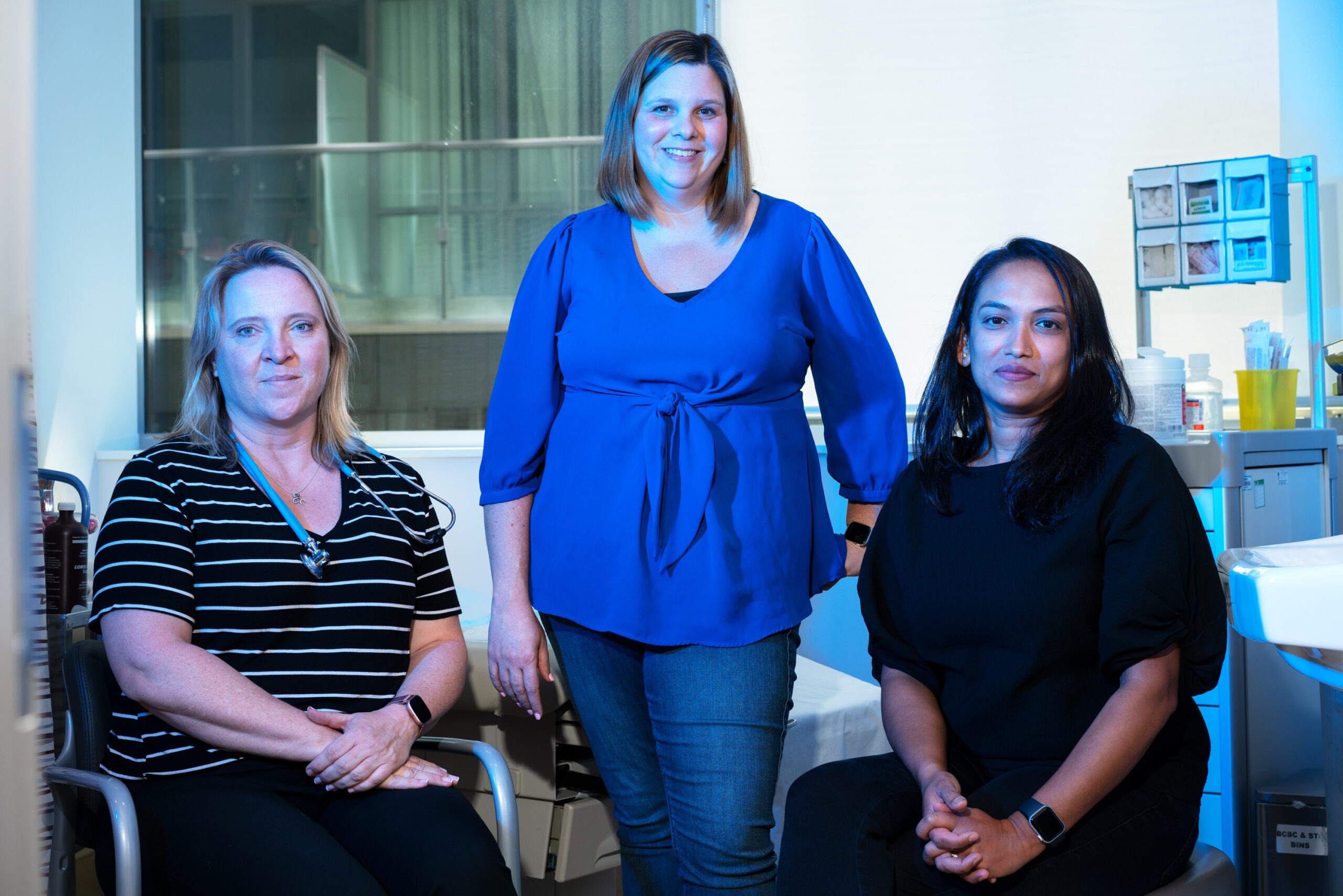Reflecting on the Bay Centre’s 50-year legacy of pushing boundaries and shaping the future of sex, gender and reproductive healthcare

After the legalization of contraception in 1969, Women’s College Hospital (WCH) began its Family Planning Program, which would, in March 1973, become the Bay Centre for Birth Control – Toronto’s first hospital-supported walk-in birth control clinic, as well as a teaching clinic for nursing, medical, social work and pharmacy students.
For 50 years, the Bay Centre has been prioritizing access to timely and integral sexual and reproductive care, and that remains a guiding principle. From providing contraceptive options like birth control pills and IUDs to colposcopy – a diagnostic procedure for detecting cervical cancer – and launching “no-touch” virtual abortions, the Bay Centre has always been a leader in terms of driving advocacy and access to care for women and gender diverse patients.
The clinic has remained nimble, demonstrating the ability to evolve and adapt to the changing landscape of sexual and reproductive care to serve the needs of communities. “Over time, we’ve had to adapt to the world around us to meet the needs of our patients,” says Sarah McCarthy, team lead at the Bay Centre. In 1987, for instance, an AIDS educator was brought on to provide education on HIV/AIDS to WCH staff and the public, and in 1995, the clinic was designated as an anonymous HIV testing site by the Ontario Ministry of Health.
Throughout its history and into today, the Bay Centre has established itself as a leader and innovator. The centre was an early provider of safe and accessible abortion shortly after Canada's Supreme Court overturned the national abortion ban in 1988. Fast-forward more than 30 years later to 2020, the Bay Centre launched one of Ontario’s first virtual “no-touch”– meaning there’s no requirement for bloodwork or ultrasounds – abortion programs when the COVID-19 pandemic reduced in-person access to reproductive healthcare. This innovative approach is made possible through a comprehensive screening, counselling and follow-up protocol that ensures it is a safe option for patients. Most recently, in the summer of 2022, the clinic became one of few hospitals in Ontario to offer late term surgical abortions.
“Many patients have difficulty accessing necessary sex, gender and reproductive health services in Ontario due to barriers such as geography, stigma, precarious employment or caregiving responsibilities,” says Dr. Sarah Warden, physician lead of the Bay Centre’s medical abortion program. “With this in mind, we have designed a no-touch protocol to help patients access care without having to leave their own communities or even visit a healthcare setting in most circumstances.”
When it comes to improving access to services outside the walls of WCH and to structurally and systemically marginalized groups, Niru Bhanderi, Nurse Practitioner (NP) at the Bay Centre, is building capacity for the provision medical abortions in more remote Ontario communities. A recipient of funding from the Emily Stowe Scholars Program, Niru is collaborating with NP-led clinics to train nurses to provide this service in areas where access is limited. “We’re continually learning, adapting and doing research on how we can do things better,” says Bhanderi. “It’s about thinking what we can implement in our day-to-day activities to remove barriers to care.”
Leading the way in sex, gender and reproductive healthcare, all the while improving access, integration and providing a safe, comfortable care environment are recurrent themes in the Bay Centre’s 50-year legacy. As it moves into the next half century, patient-centred care will remain at the core.
“As long as I’ve worked here, I’ve seen patients come in because their family member or close friend have come to the Bay Centre and have had a good experience,” says McCarthy. “They trust us and keep coming back – it’s a testament to how safe and well cared for they feel here, and that’s something that will never change.”